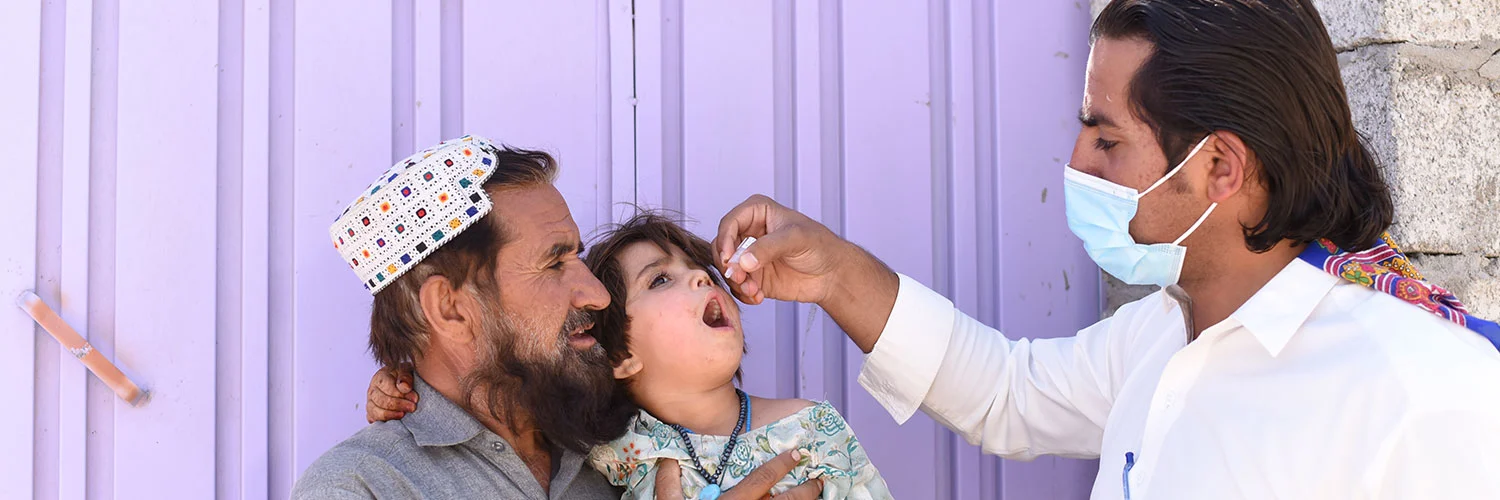Islamabad: 29 June 2016: At the conclusion of its two-day meeting in Islamabad, the Technical Advisory Group (TAG) has appreciated the progress made by in Pakistan over the past six months and urged the programme to maintain quality of campaign focused on improving the overall performance and decreasing the number of missed children in the core reservoir areas and to identify and address the residual risks and to act swiftly in response.
Chair of the TAG Jean Marc Olive said Pakistan colleagues presented TAG with a comprehensive picture of the epidemiological situation across the country, indicating that the initiatives and strategies that are being used show the country is on the right track to end transmission.
“I've never been so optimistic about the ability to interrupt the transmission of polio virus in Pakistan. The Government of Pakistan should be extremely proud for what has been achieved so far. We all know it's not done and there is always going to be challenges and surprises as we draw closer to eradication, but we learn from surprises”, said Jean Marc Olive.
A high level delegation of the Government of Pakistan and key partner agencies to the Polio Eradication Initiative in Pakistan, including Minister of State for National Health Services, Regulation and Coordination, Mrs. Saira Afzal Tarar and the Regional Director of WHO’s Eastern Mediterranean Regional Office, Dr. Ala Alwan, joined the closing session of the two day TAG in Islamabad.
Minister of State for National Health Services, Regulation and Coordination, Mrs. Saira Afzal Tarar said that the Government of Pakistan remains unswerving to fully implement recommendations of TAG in letter and spirit.
“The review and recommendations of the technical consultation panel has been convened at a very critical juncture, like just before the last lap of the race. The finishing line is in sight but we have to travel at a faster pace to timely reach and cross the line. More than the accomplishments and achievements, we must look at the gaps to be filled and this is what is going to be the decider for success or failure.”
The Prime Minister’s Focal Person for Polio Eradication, Senator Ayesha Raza Farooq said the programme is resolutely focused on stopping persistent transmission in the core reservoirs “by building on gains made to boost immunity gaps; and to continue to aggressively respond to any sign of virus transmission across the country as evidenced by our current efforts in Northern Sindh, Southern Khyber Pakhtunkhwa and Southern Punjab.”
“I must also acknowledge the unblemished support that we are getting from international community including our friendly Governments as well as the donors and partner agencies. WHO, UNICEF, Gates Foundation, the CDC as well as the Rotary International have stood by us through turbulent times. As we are now entering in a sprint phase towards the victory stand, we would be expecting an even more efficient fueling from these organizations during next two and a half years.”
Regional Director of WHO’s Eastern Mediterranean Regional Office, Dr Ala Alwan said “polio eradication is one of the top priorities in this region. This is a turning point in the global struggle against polio. The epidemiological situation is the best ever achieved now; there is no doubt that there is improvements in performance, and with the impressive government ownership of the programme, I think we can say that much of the remaining challenge is operational.”
Note for the editor:
The Technical Advisory Group (TAG) was established to review progress towards polio eradication in specific countries, assess implementation of previous TAG recommendations, discuss planned activities and issue recommendations to address constraints facing national programmes in achieving their targets. TAG meetings are attended by country-specific TAG members, national representatives and partner organizations, both international and regional.
The TAG meets twice a year in Pakistan and Afghanistan to review progress and provide expert advice on the final road to reaching zero. The meeting brought together polio eradication experts from the government of Pakistan, lead implementing partners including, the World Health Organization (WHO), the United Nations Children’s Fund (UNICEF), senior representatives from across the Global Polio Eradication Initiative (GPEI): Rotary International, Bill and Melinda Gates Foundation and the US Centres for Disease Control and representatives of key donors and donor countries.

